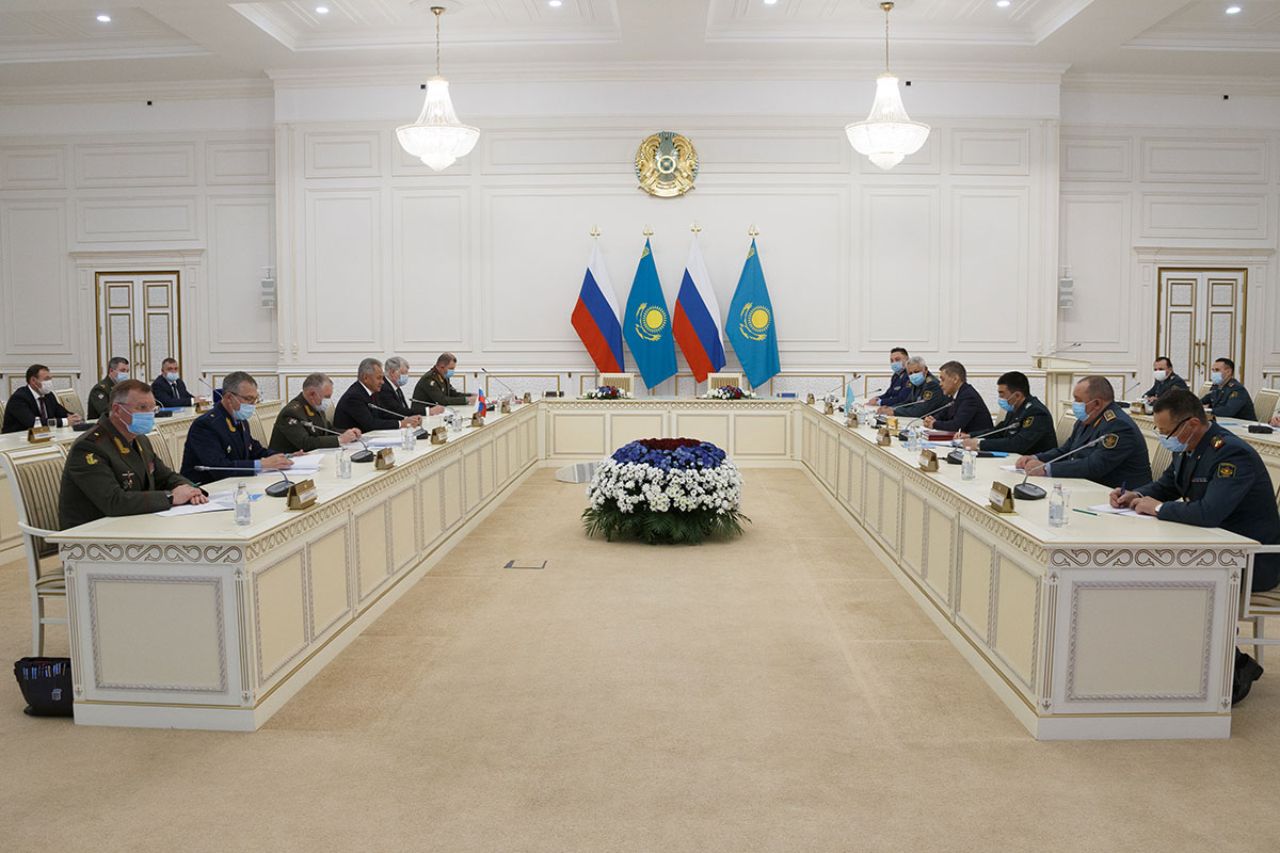
Russia and Kazakhstan have signed an agreement to boost bilateral military cooperation between the two countries.
The interstate agreement was signed by the Defence Ministers of Russia, General of the Army Sergei Shoigu, and of Kazakhstan, Lieutenant General Nurlan Yermekbayev in Nur-Sultan, the capital city of Kazakhstan.

Discover B2B Marketing That Performs
Combine business intelligence and editorial excellence to reach engaged professionals across 36 leading media platforms.
The new agreement will supersede the existing agreement on military cooperation and extends collaboration to include a variety of fields such as peacekeeping, interaction within international organisations, countering regional challenges, culture and sports.
Additionally, Russia and Kazakhstan agreed to cooperate on military education and training, weaponry procurement, participation in joint bilateral and multilateral exercises.
The two ministers also signed a plan of cooperation between the two military departments for next year. The plan is broader compared to the plan undertaken for the current year.
Before the signing of the agreement, Shoigu said: “The Republic of Kazakhstan is Russia’s main strategic ally and closest partner. Despite the pandemic, military cooperation between our countries is steadily developing.

US Tariffs are shifting - will you react or anticipate?
Don’t let policy changes catch you off guard. Stay proactive with real-time data and expert analysis.
By GlobalData“It is organised in accordance with the medium-term programme of bilateral strategic partnership in the military field for 2019-2021. Today we will sign a cooperation plan for the next year, which will specify the procedure for further cooperation.
“We will focus on joint operational and combat training activities, including within the framework of the multilateral formats of the CSTO, the CIS and the SCO, as well as the development of a unified regional air defence system.”





